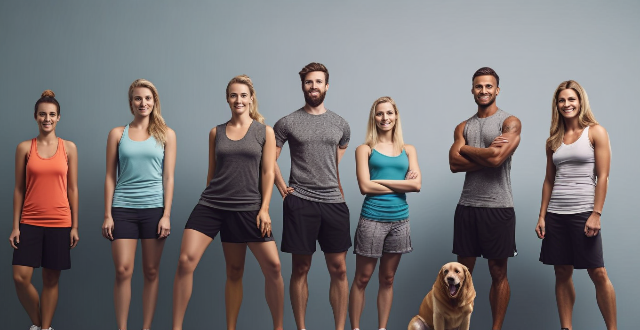Successful fitness instructors need a blend of knowledge, communication skills, motivational abilities, physical prowess, and safety awareness to guide clients effectively towards their fitness goals. Key areas include understanding anatomy for safe workout design, obtaining certification and continuing education, demonstrating strong interpersonal and communication skills, keeping clients motivated with positive reinforcement, creating customized workout plans, maintaining personal fitness for credibility, and being prepared for emergencies with first aid knowledge.

What Skills Do I Need to Be a Successful Fitness Instructor?
Being a successful fitness instructor requires a combination of various skills that are essential for guiding and motivating individuals or groups towards achieving their fitness goals. Here is a detailed breakdown of the key skills you need to possess:
1. Knowledge of Fitness and Anatomy
To be an effective fitness instructor, you should have a solid understanding of the human body's anatomy and physiology. This knowledge will help you design safe and effective workout programs tailored to your clients' needs.
- Familiarity with Different Muscle Groups: Understanding which exercises target specific muscles is crucial for creating well-rounded fitness routines.
- Injury Prevention: Knowing how different movements affect the body can help prevent injuries during workouts.
2. Certification and Continuing Education
Obtaining certification from a reputable organization demonstrates your commitment to professionalism and staying updated with the latest fitness trends and research.
- Initial Certification: Completing a certification course is often a prerequisite for becoming a fitness instructor.
- Continuing Education: Attending workshops, seminars, and updating your certification regularly keeps your knowledge current.
3. Communication and Interpersonal Skills
As a fitness instructor, you will be working closely with clients from diverse backgrounds. Being able to communicate effectively and build rapport is vital for client retention and satisfaction.
- Clear Explanation of Techniques: Ability to explain exercises clearly so that clients perform them correctly.
- Active Listening: Listening to clients' feedback allows you to adjust their programs accordingly.
4. Motivational Skills
Keeping clients motivated throughout their fitness journey is one of the most significant aspects of being a successful instructor.
- Positive Reinforcement: Encouraging words can go a long way in keeping someone committed to their fitness goals.
- Setting Achievable Goals: Helping clients set realistic targets increases their chances of success and maintains motivation.
5. Programming and Planning
Creating customized workout plans based on individual needs showcases your expertise as a fitness instructor.
- Variety in Workouts: Mixing up routines not only keeps things interesting but also challenges the body differently.
- Adaptability: Being able to adjust programs based on progress or setbacks shows flexibility and understanding.
6. Physical Prowess and Demonstration Ability
Being physically fit yourself and capable of demonstrating exercises correctly provides credibility and serves as a model for your clients.
- Proper Form: Showing correct form during demonstrations is crucial for preventing injuries among clients.
- Energy and Stamina: Maintaining high energy levels throughout sessions keeps the atmosphere engaging and dynamic.
7. First Aid and Safety Knowledge
Accidents can happen during physical activities, so having basic first aid knowledge is essential for handling emergencies.
- CPR Certification: Knowing CPR can be lifesaving in case of cardiac arrest or similar incidents.
- Safety Protocols: Familiarity with safety procedures ensures a secure environment for all participants.
In conclusion, a successful fitness instructor is not only knowledgeable about fitness and anatomy but also possesses excellent communication, motivational, and interpersonal skills. Additionally, they must stay updated with continuing education, demonstrate strong programming abilities, maintain physical fitness, and have basic first aid and safety knowledge. By combining these skills, you can guide your clients safely and effectively towards achieving their health and fitness objectives.